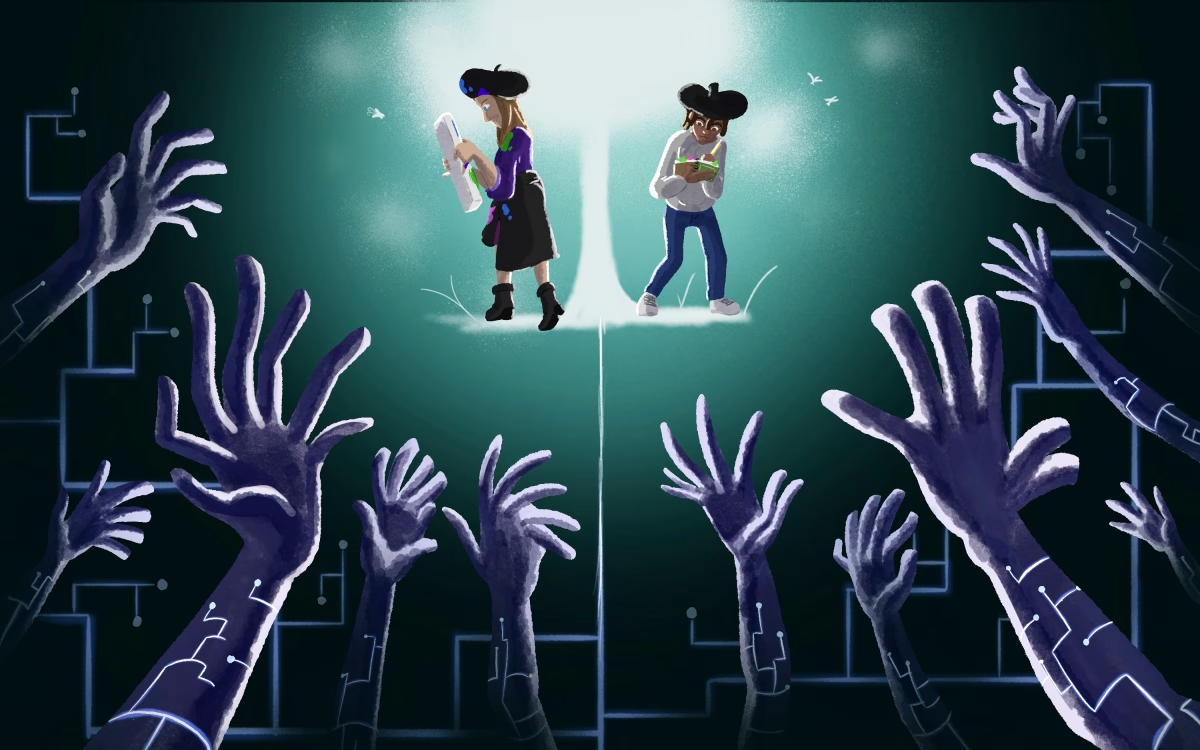When DePaul junior Ishan Shah decided to apply for a summer internship in banking at Deloitte, one of the largest professional service firms in the world, he had a rough idea of what the interview process would entail.
But upon receiving a request to move forward in the application process, he was alarmed by a new interviewing system. Instead of a human resources representative, he would answer questions from an artificial intelligence forum designed to record, analyze and ultimately determine his value as a job candidate.
“At first, I thought the idea of it was cool,” Shah said. “As someone who did not have much interview experience, it made me feel more comfortable just talking to a camera and answering questions.”
After about one or two rounds, the questions began to feel monotonous, Shah said. He began to miss the interpersonal aspect of interviews.
In Shah’s case, his AI interviewer belonged to a recruitment solutions company known as Hirevue, one of the most popular human resource management companies that specializes in machine processing. Increasingly, large and small companies are using AI in various aspects of their businesses.
Although not as overt, even certain networking sites including LinkedIn or Glassdoor have incorporated AI systems into application review and profile management.
As more AI-driven companies help screen candidates, some businesses are cutting their own internal human resources and recruiter positions.
But even as these new interview practices make their way into corporate settings, not all participants or spectators favor the methods used in this new age of hiring.
Tim Cole, an associate professor of Communication and Media in DePaul’s College of Communication, specializes in the studies of deceptive communication, romantic relationships, attachment and relational communication.
“When we interact with others, it sparks emotions like empathy, happiness and even love,” Cole said. “Whether it’s a chat with a friend or working together on a project, these interactions are what make us feel connected to the world.”
Although Cole’s work prioritizes a more human touch over a tech-driven approach, he finds that these days the two are often intertwined.
“Technology opens conversations by making it easier to connect … but at the same time, it can be detrimental,” Cole said. “Quick texts or posts can lack depth, and people sometimes avoid real conversations by relying too much on digital tools.”
Despite offering companies a way to cut costs, AI interviews can also dissuade applicants who see it as an impersonal barrier.
Shah wonders if that means companies will miss out on unique and qualified employees, simply because they don’t match the AI specifications.
After going through this processed system, Shah said the applicant may question the values of the companies.
“As an applicant, applying for a role and then instantly receiving a ‘Hirevue’ just elongated the application process and made me feel like more of a cog in the wheel,” Shah said.
For human hiring professionals, AI interviews often go against their own training and values, even if enticing from a streamlining stance.
David Avdul, interim vice president of human resources at DePaul and a part-time faculty member in the School of Business, wrestles with this conflict as a former corporate HR professional. Before joining DePaul in 2016, he spent nearly a decade in compensation and benefits management. Now he works to balance both perspectives in the face of AI.
“We’ve seen in research that most job interviewers prefer unstructured interviews because they believe it will allow them to gather richer information about candidates,” Avdul said. “However, AI can be extremely powerful and beneficial in helping to streamline much of the heavy lifting that goes into sourcing and finding qualified candidates.”
Avdul sees the value in AI’s ability to conserve time, review large sets of data and even to curb potential bias and errors brought about by human instinct. But he understands that it could also portray a cold and inhumane demeanor.
But in certain industries, such as the financial sector, Shah has realized it’s simply something he must do. In the past year, he has done over six Hirevue interviews for placement across various financial brands, including EY, KPMG and JPMorgan Chase & Co.
Avdul agrees it’s inevitable.
“Going forward, it will be essential for jobs to adapt their processes, toolkits and mindset with the understanding that many organizations are going to deploy AI technology for talent acquisition,” Avdul said. “I think that’s the reality.”
Related Stories:
- Bring a gun on the CTA? AI might know
- Slowing down AI for the health of the planet
- AI, democracy and disinformation: How to stay informed without being influenced by fake news
Support Student Journalism!
The DePaulia is DePaul University’s award-winning, editorially independent student newspaper. Since 1923, student journalists have produced high-quality, on-the-ground reporting that informs our campus and city.
We rely on reader support to keep doing what we do. Donations are tax deductible through DePaul's giving page.


